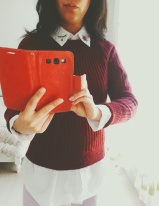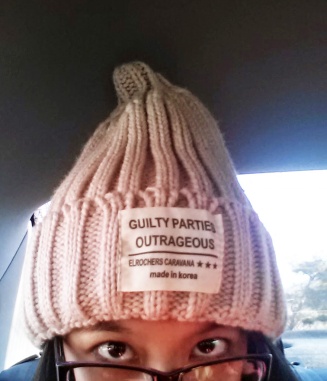This post has been a long time coming. I finally sat down to write and was overwhelmed by how much I had to say. So we’ll break this topic into bite-sized posts and see where it takes us.
–
Everything culminated my first winter in Korea.
If I heard someone or something labeled “pretty” or “ugly” one more time, I might explode. It was winter break, and after a period of indecision, I high-tailed it to Japan for a week.
I stayed with a friend teaching English there, and for the next few days, whenever I opened my mouth to speak about Korea, negativity poured out. I didn’t realize this until one day she offhandedly remarked that she didn’t know much about Korea at all.
Immediately I felt a sort of guilt mingled with a sense of responsibility toward the country that had been my home for six months. I tried from then on to portray some of the positives of the country, but am convinced I fell short.
Up until that point, I’d lived in Korea just going along with whatever came my way.


I’d altered my makeup, started using Korean skin care, ate more (in accordance with my host family’s wishes) and tried everything, both in terms of food and experience.
The thing is, I loved it.
Everything was new and exciting.
I let go of my reservations and preferences. When something began to bother me, I simply brushed it off or ignored it.
But by winter I was so tired. And the thing about Korea that wore me down the most was its beauty standards.
–
Coming to Korea on a Fulbright teaching grant, you’re primed to expect comments about appearance. The orientation team tells you that people will be blunt, speak openly about your weight and that plastic surgery is commonplace, even among students.
 You hear that Korean women, and even some men, always wear makeup when they go out.
You hear that Korean women, and even some men, always wear makeup when they go out.
You’re taught that one day your coworkers might tell you outright that you look bad or that “you look tired today,” which is just code for “bad.”
Those who have been down the path of Fulbright Korea inform you that commenting on physical appearance is common and not really rude in this culture.
OH, THE COMMENTS
So I strode into Korean society prepared, knowing exactly what was in store for me in the beauty standards department. Except that I wasn’t. And even though I brushed them away, a barrage of comments continued to pile up.
“You look better with makeup.”
“Your thighs are a little big.”
“You’ve gained weight.”
“You’re getting fat.”
American that I am, these comments were shocking. I laughed sometimes, was quietly indignant at times, and simply distracted myself with something else the rest of the time.
UGLY
The shocking comments continued, not just about me but others:
“She’s ugly.”
“Wow, he’s really ugly.”
“She had plastic surgery, but she’s still so ugly.”
“That baby was REALLY ugly.”
A baby? Really?! I don’t think I’d ever heard the word “ugly” as many times in my life as I had after a few months in Korea.
PRETTY
It’s wasn’t just the ugly. The compliments flowed in too. The word “pretty” was grossly overused. And while I didn’t mind at first, the constant labeling of the people and things around me as “pretty” or “ugly” became disconcerting.
“You’re so pretty.”
“She’s so pretty.”
“He’s pretty.”
“Aren’t they a pretty couple?”
“That car color is so pretty.”
Really? It’s a car. Machinery. It can’t be pretty. But I kept my increasingly-furious thoughts to myself.
If I heard the word pretty one more time, I’d snap.

Read parts 2 and 3 here:
